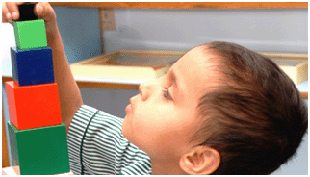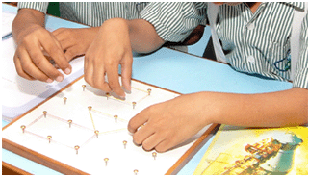Children discover facts by themselves, in peer groups or through interactions with peers. Self checking and peer checking lead to instant feedback and corrections. No child is left behind and all misunderstandings are immediately corrected.
This has become another avenue for creating active classrooms!
There is a process and a method to peer teaching/ learning and to peer and self assessments by which teachers can be most effective. We have observed many creative ways in which our teachers have begun to engage students, from instant on the spot checks done verbally, to children coming to up to the blackboard and detailing each step which other children review their copies against.
Worldwide research has shown that instant feedback is more effective than when a teacher brings back the corrected work a day or more later. By this time, the children have moved on to other lessons and they rarely get the full advantage of their teachers’ hard work put into the traditional correction process.
Peer and Self Corrections, on the other hand, provide not only instant feedback and reinforce learning, they are powerful ways to develop both self-confidence and critical thinking skills. These help solidify learning by providing a second chance to review completed work. By correcting each others’ work the students learn in addition to take responsibility and develop leadership skills.
By correcting their own work, students learn critical self-evaluation skills – this being the highest form of learning in the Bloom Taxonomy.
Self-checks allow children to view their exercises over time as puzzles. In due course, children learn to love correcting their own work, safe in the knowledge that they will not be judged by the outcome – by their parents, teachers or peers.


Copyright © 2012 Nurture Global School All rights reserved.